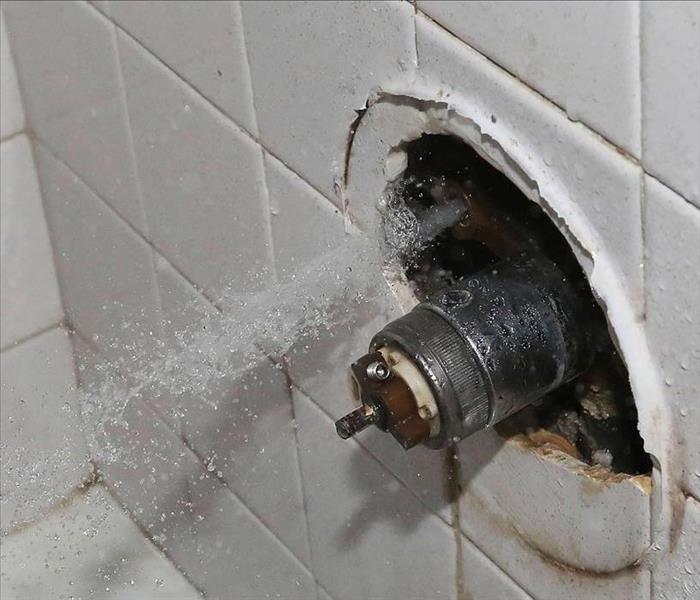Hard Water hurts
6/4/2020 (Permalink)
What Is Hard Water?
Very simply put, hard water is water that contains a high concentration of certain minerals, namely calcium and magnesium. While hard water is safe for human consumption, it can leave unsightly, hard-to-clean spots on your fixtures. Even worse, over time hard water can leave deposits that can damage your pipes.
How Does Hard Water Damage My Pipes?
Mineral deposits from hard water, also known as scale deposits, are often responsible for clogging pipes. When hard water is heated, a certain amount of water evaporates, causing the minerals suspended in it to precipitate. This solidified scale (or limescale) can then accumulate inside your pipes, water heater, washing machine and dishwasher.
These accumulations can cause major troubles all throughout your plumbing system, from low water pressure to the failure of certain appliances. What’s more, some types of plumbing are more susceptible to hard water clogging than others. While copper, PVC and PEX pipes are more resistant to hard water buildup and corrosion, they can still get clogged or completely blocked by scale deposits.
What Are the Best Hard Water Solutions?
When it comes to preventing hard water damage, you have two main options: installing a water softener or a reverse osmosis water treatment system.
A water softener is a tank situated between your water source (e.g., your municipal water supply's main line) and the internal plumbing that services your home. Inside this tank is an inorganic softening medium — a resin or crystalline substance — suspended in a saltwater solution. As water filters through the softener, the hard minerals in it literally swap places (on the molecular level) with the sodium in the medium itself via a process known as ion exchange. The result is that these minerals are effectively removed from the water before it reaches your appliances and faucets.
In the reverse osmosis process, impurities are stripped from your water through a semipermeable membrane. This microscopic filter catches all manner of substances and not just "hard" minerals. In fact, the pitcher in your refrigerator may very well use this same technology to supply your family with clean, refreshing drinking water. Reverse osmosis systems are typically more expensive than water softeners.


 24/7 Emergency Service
24/7 Emergency Service
